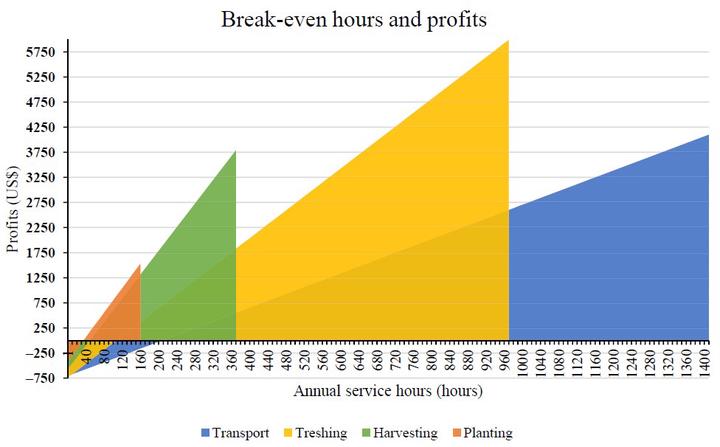Towards inclusive mechanization? Two-wheel tractor-based service markets in Ethiopia, Burkina Faso, and Zimbabwe

Abstract
Purpose – African agricultural mechanization could lead to a mechanization divide, where only large farms have access to machines. Technological solutions such as scale-appropriate machines and institutional solutions like service markets offer hope for more inclusive mechanization. Two-wheel tractor-based service markets combine both technological and institutional elements, but there is limited research on their economic viability and challenges. Design/methodology/approach – We analyze the economic viability of two-wheel tractor-based service provision based on data from service providers in Ethiopia, Burkina Faso, and Zimbabwe. We also examine the institutional framework conditions for such service providers based on qualitative interviews with these service providers and stakeholders such as machinery dealers, spare parts providers, and banks. Findings – Two-wheel tractor-based service provision is economically highly viable, largely due to multifunctionality. Post-production services such as threshing and transportation are particularly lucrative. However, the emergence and economic sustainability of service providers can be undermined by bottlenecks such as access to finance, knowledge and skills development, access to fuel and spare parts, and infrastructure problems. Originality/value – This is the first study on the economics of two-wheel tractor-based service provider models. Past studies have focused on large four-wheel tractors, but Two-wheel tractors are different in many aspects, including regarding investment costs, repair and maintenance costs, capacity, and multifunctionality.